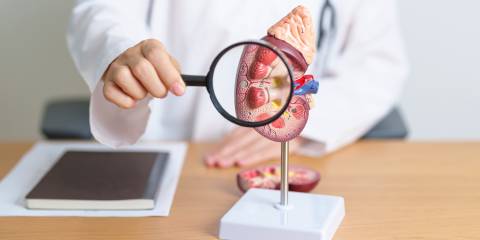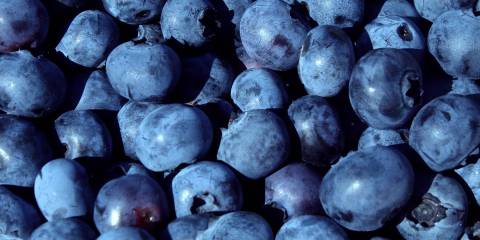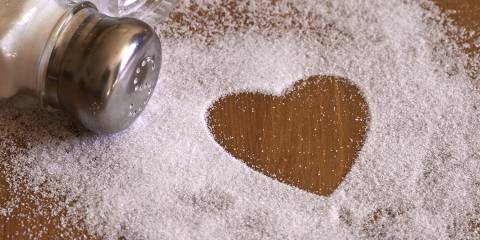It might seem like a modern ailment, but kidney stones are nothing new—scientists have found evidence of kidney stones in a 7,000-year-old Egyptian mummy. Today, kidney stones are one of the most common urinary tract disorders.
How Kidney Stones Form
Stones commonly form in kidneys or related parts of the urinary tract as a result of disease, infections, or difficulties with mineral metabolism or excretion.
Most stones are formed from oxalate, a substance found in various plants. Calcium oxalate is the most common among these, but other oxalate combinations may include magnesium or phosphorus.
When a stone erodes tissue, blood appears in the urine. When one lodges in the ureters (the tubes that carry urine from the kidneys to the bladder), severe pain—very severe pain—in the lower abdomen and groin results.
Other complications may include obstruction to urine flow, persistent kidney infections, and progressive tissue damage with loss of kidney function. Most stones are passed in the urine, but others require medical treatment.
Are Kidney Stones Hereditary?
Kidney stones tend to run in families, and four of five patients are male, usually between the ages of 20 and 30.
How Do You Prevent Kidney Stones?
Conventional medical treatment to prevent kidney stones may include dietary calcium restriction (although this is controversial), diuretics, and sometimes pharmaceuticals to slow uric acid formation.
Kidney stones can also be removed surgically, while a noninvasive technique uses narrowly focused acoustic shock waves to break up stones.
Supplements to Prevent Kidney Stones
Complementary and alternative medical treatment of kidney stones (particularly prevention) may involve the use of certain dietary supplements, including magnesium, vitamin B6, potassium, and citrates.
-
Magnesium & Vitamin B6
Both magnesium and vitamin B6 are used by the body to convert oxalate into other substances. Consequently, it should come as no surprise that a B6 deficiency can lead to an increase in kidney stones, relating to elevated urinary oxalate.
This doesn’t mean that you need to be vitamin B6-deficient in order to benefit from supplementation. Research shows a reduction in elevated urinary oxalate following supplementation in some people who are not necessarily B6-deficient. Many studies demonstrate that supplementing with magnesium and/or vitamin B6 significantly lowers the risk of forming kidney stones, and even helps reduce the incidence of recurrences.
Suggestions for doses of magnesium and vitamin B6 in the treatment of kidney stones vary. Common recommendations include 200 to 400 mg of magnesium daily. Magnesium citrate may be the best form, since citrate itself reduces kidney stone recurrences. Take magnesium with meals.
Recommendations for vitamin B6 range from as low as 10 to 50 mg to as high as 1,000 mg daily for those with elevated urinary oxalate. At the higher level, supplementation should be monitored by a physician.
-
Potassium
Potassium reduces urinary calcium excretion, which is important since increased levels of urinary calcium also add to the risk of kidney stones. Those who eat high amounts of dietary potassium appear to be at low risk of forming kidney stones. Fortunately, most Americans get plenty of potassium in their diet, but if a healthcare provider recommends potassium, the citrate form—as with magnesium—may be best.
-
Citrates
Citric acid is a natural substance found in citrus fruit. Research suggests that citric acid in the form of mineral citrates (a mineral combined with citric acid) may protect against kidney stone formation.
If you suspect you have kidney stones, see a doctor immediately. If, on the other hand, you want to prevent the recurrence of kidney stones, any of these dietary supplements may be useful and are advisable.
-
Calcium
Although most kidney stones are caused by calcium oxalate, calcium is still important to prevent osteoporosis, especially in women. Furthermore, low dietary levels of calcium have been shown to increase the risk of getting kidney stones since there’s less calcium available to bind with oxalates.
In fact, research shows that dietary calcium actually helps prevent kidney stones. At the same time, calcium supplements have not proved protective against kidney stone formation, perhaps because they were not taken with meals to prevent oxalate absorption.
If you have a family history of kidney stones, take calcium supplements with meals. Those with a personal history of stones should only take calcium supplements on the advice of a healthcare professional.
Drink Up to Prevent Kidney Stones
An important measure for helping to wash out formed crystals that may form stones is a high fluid intake. In one study, a high fluid intake and elimination of “dietary excesses” controlled stone formation in 60 percent of patients with kidney stones. But what you drink is as important as how much liquid you consume. Grapefruit juice increases the risk, while both coffee and tea may decrease it. Cola drinks are implicated as a possible kidney stone culprit as well.




